The wild and remote islands that help ease climate anxiety
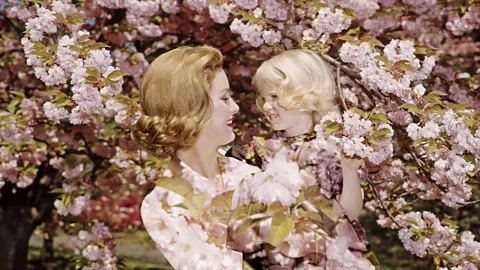 Getty Images/BBC
Getty Images/BBCWorrying about climate change can leave you feeling overwhelmed, but spending more time in nature can change how you think about the problem, writes Sophie Yeo.
The Farne Islands are remote, but they aren't quiet. During the summer months, this cluster of rocks off the coast of northern England becomes home to thousands of seabirds. Puffins dart overhead, their beaks full of sand eels. Arctic terns dive-bomb visitors to protect their chicks. In the old church, island rangers compete for attention with the swallows that nest among wooden beams. It's a reminder that nature isn't always peaceful. Sometimes, it's chaos.
This was the picture I tried to paint when our friends, Tom and Rachel, came up from London to visit my boyfriend and I in the north earlier this summer. Maybe my descriptions were too restrained; or perhaps it has simply become difficult to accept a scenario where nature is clamorous and uncontrolled. In any case, it was clear that they didn’t quite believe me.
You might also like:
“What are the chances of seeing a puffin?” they asked, before getting adorably excited when the first ungainly bird flapped into view on our way out to the Farne Islands.
When we finally disembarked, the sight of birds covering every rock and crossing every metre of sky was almost too much. We got distracted by so many marvels, repeatedly losing sight of one another. We lost track of time. At one point, we thought Rachel might have actually disappeared for good.
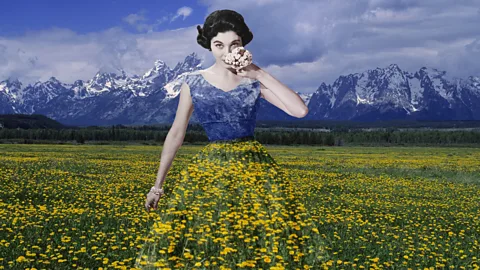 Getty Images/BBC
Getty Images/BBCSince we moved to the north of England last year, I've become increasingly accustomed to the idea that nature can still be abounding. Before this, I had spent the majority of my adult life in major cities. I was working as a staff writer at various climate change publications, where I was mainly concerned with international policy. I chose this career path as I was worried about the long-term impacts of rising greenhouse gas emissions: the increasing vulnerability of the world's poorest people, the threats to food security, the loss of ice sheets.
But, as a middle-class person living in a wealthy country, I mostly felt shielded from the worst impacts of this unfolding disaster. If the planet at large was becoming increasingly dangerous, the natural world ever more degraded and impoverished, it wasn’t something that I experienced myself on a day-to-day basis.
Moving to the north precipitated a kind of reconnection to nature. I filled my free time seeking out barn owls, kingfishers, orchids and other more commonplace species. Suddenly, with the countryside on my doorstep, the destruction of the natural world became apparent. Spending time outdoors made me happy, but it also hurt me to witness all that we had lost: my own world was in crisis. (Read more about the harm that climate anxiety can do.)
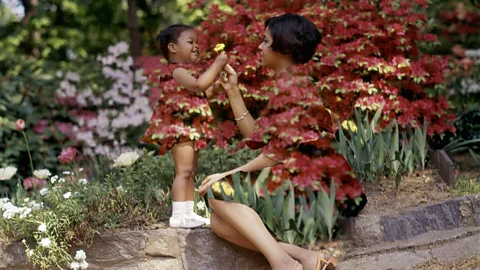 Getty Images/BBC
Getty Images/BBCIndeed, a few weeks after our trip to the Farne Islands, I discovered that heavy rains in June led to the deaths of hundreds of vulnerable puffin chicks. The National Trust, which manages the islands, issued a warning about the potential effects of the climate crisis on bird numbers. The news haunted me all day. I mentioned it once again to my boyfriend before we went to bed. “Don't mention the puffin chicks now,” he said. “It makes me too sad.”
This experience of excitement tinged with devastation sat awkwardly against the received wisdom about the relationship between humans and nature. It is, after all, well-established that more time in nature is meant to make us happier. Recent research has suggested that spending more time outside, where we might listen to birdsong or notice the beauty of a beetle, would lead us to live generally better lives.
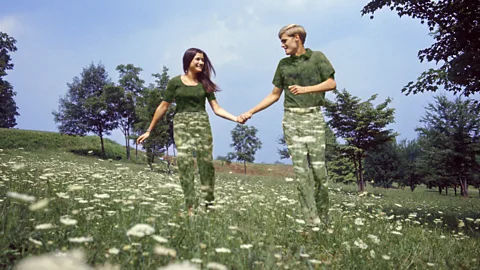 Getty Images/BBC
Getty Images/BBCBut the ties that bind us to the natural world are being severed. We live increasingly urban lives, where we are tethered to technology and largely immune to the cycle of the seasons. I wondered whether these findings held true if spending extra time in nature meant we became more acutely aware of the destruction surrounding us, or whether it could exacerbate feelings of eco-anxiety that so many people are reporting today. Was I alone in finding time spent in nature somewhat bittersweet? I asked Miles Richardson, head of psychology at the University of Derby, who is leading their research into the impacts of nature connectedness.
“I think it’s fair to say that, as you get more connected to nature, you become more concerned about the environment. That's well established,” he says. “It's quite likely that, for the people that get particularly concerned, that can start to impact on their own feelings of subjective wellbeing, because, if you look at it closely, it's a very sad state of affairs with some very serious consequences.”
Academic research linking these three emotions – nature connectedness, environmental concern and poorer wellbeing – is still in its early stages. But it is very much a real-life issue, says Caroline Hickman, who researches climate change and psychology at the University of Bath, as well as running her own psychotherapy practice. She says that while spending time in the natural world may cause us to worry, it can also mean we take action from a healthier mental place.
 Getty Images/BBC
Getty Images/BBC“As we become aware of the impacts of climate change on the planet, we notice things like rivers drying up, the impact on trees, the impact on crops. As we become aware of that, yes, it will trigger those anxieties and that depression. A lot of activists are very constellated around that stage [and] often get exhausted, burnt out, despairing and full of rage,” she says. “But if you've moved through the despair into genuine grief and loss, then you can psychologically move to an acceptance, and then you can take action from a very different place.”
Hickman is far from the only person to notice a relationship between spending time in nature and behaving in more environmentally friendly ways. A meta-analysis of 85 studies found a “strong and robust association” between nature connection and pro-environmental behaviours. Significantly, the researchers found that when the results of all these studies are analysed this relationship was not simply correlational but causal. In other words, it was people's connection to nature that was actively leading them to take action.
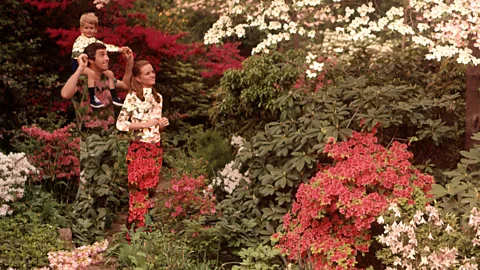 Getty Images/BBC
Getty Images/BBCIn the UK, there is an annual test of this theory. Every June, the Wildlife Trusts runs a campaign called 30 Days Wild, encouraging people to undertake a “random act of wildness” every day for a month. Participants give , via a survey designed by Richardson, on how this engagement has affected them. Consistently, it has led to participants reporting higher levels of health, happiness, and pro-conservation actions.
“Every year, the results have shown that you're more likely to take action for nature if you make room for it, even in just a teeny tiny way. That increases your connection to nature and also your environmental awareness,” says Lucy McRobert, who helped design the 30 Days Wild campaign and co-authored a study analysing its impacts.
Inevitably, everyone's responses to nature will vary. For me, spending more time outdoors has been the difference between knowing nature is in trouble and experiencing that painful bolt that comes with bearing witness to the thinning of species and the vanishing of landscapes. Yet the wonders of the natural world console me through each new pain. As long as I can still find puffins on remote Northumberland islands, still wander through ancient woodland, still seek out the wildflowers in the corners of a city, the best remedy to my eco-anxiety remains nature itself.
--
Climate Emotions
This article is part of our Climate Emotions series. Climate change is harming the planet, and it may be harming our mental health too.
From fear and anxiety to hope and healing, this series examines our complex responses to climate change, and how those responses will shape our ability to deal with the environmental challenge we face.
--
If you liked this story, sign up for the weekly bbc.com features newsletter, called “The Essential List”. A handpicked selection of stories from BBC Future, Culture, Worklife, and Travel, delivered to your inbox every Friday.
